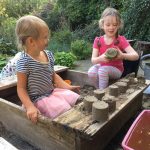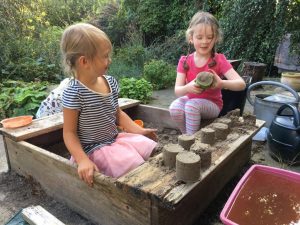Introduction
Craniosacral therapy can be useful for uncovering hidden family dynamics firstly in the individual parents, and secondly in the interaction between the parent and the child. Some Craniosacral practitioners are sensitive enough to observe direct energetic effects that parents have on their children and vice versa, and so can help parents to see what is going on in their interactions, as well as support the children in receiving the emotional regulation they really need.
Why bring a child for a cranio session?
Parents generally bring their children to me because they care about them, and see that in some way they are struggling or not happy, but don’t know themselves what more they can do. They sense that somehow I have some answers or know something that they don’t. What I do have in fact is a different perspective and insight into the causes and effects of emotional patterns and behaviours and how these impact the physical body… And a way of conveying or bringing to light the deeper unseen and emotional connections in family life to parents so that they can do what their child needs in a more conscious way.
So the initial point of contact is the child, and indeed some fundamental progress can be made in releasing early trauma, grounding, re-establishing relational abilities etc. However often already in the first session, it becomes apparent that the mother-child connection is contributing to the issues and maintaining or reinforcing the problems. Of course no mother wants to consciously hurt her child, or affect them adversely in any way, so this is a delicate matter which I normally approach slowly, as the mother opens to looking at her part in things of her own accord.
The solution lies with the parents
What many parents don’t realize is that when their children have problems or disturbances, these are more often than not a result of their relationships with their primary care takers. They are also influenced directly by their parent’s habitual behaviour and emotions. In many ways this is obvious since a child is a dependent being that is developing in response to the examples set by the nervous systems and behavioural patterns of the adults they copy and interact with, and in response their particular external environment.
And yet parents don’t know where to look for solutions on the whole other than at their children, partly because the cultural focus is on medicating and controlling “badly behaved” children. It is also partly because the adult’s connection to the deeper sense of self or inner wisdom has become very dilute in western society, where the tendency is to seek external help and pay an expert rather than work out the solution.
The fact remains that no two families are alike, nor are any two individuals, so there are no ideal solutions that an expert can give. The answer will always arise out of the relationship between the individual parent and the particular child. The solution is a result of the parent’s personality and authentic response, and the particular child’s character and needs.
How parents can find their own solutions
If a parent can’t really feel themselves or doesn’t know how to manage their own undulating emotional states, they would probably not be in a position to notice the effect they have on their child. Even when they do, many parents feel powerless to know what to do about it. However it is a simple fact that a parent who is unable to handle their own emotions will not be able to provide a satisfactory environment in which the child’s brain and nervous system can develop fully. A child that has no words or means to express what they sense they are lacking but can’t get, will of course feel hurt, frustrated and start acting out.
The sense in which the child’s problems are “relational” is that the child is directly influenced by the unseen emotional energies and responses emanating from the parent. If they are being overwhelmed by the parent’s unfelt rage, or suffocated by their grief, or affected by a mother’s constant nerves and hysteria, they won’t be able to do schoolwork, or play happily. This is the gross and basic level. On a more subtle level, every unfelt need and emotion in the parent’s field affects the child, who responds to the unspoken and unseen as if it were concrete, even if the parent is unaware of it. This is no-one’s fault, and yet the child is just a fresh and enthusiastic expression of maleable new life and in that sense, whatever behaviour they are exhibiting is a direct reflection of what is going on in their surroundings…
Finding solutions to problems with the kids…
The key to solving the children’s problems, ironically, lies usually not in the child, but in the parent finding their own centre, and coming into deeper feeling connection with themselves. This is where the gentle craniosacral therapy can have profound effects in supporting the parent’s process of becoming more aware of body sensation and emotions. The more grounded or embodied the parent becomes through the craniosacral sessions, the more present they are, rather than lost in their thoughts, the more able to respond with intelligence to the real needs of the child. This is very different from responding with parenting concepts they have been taught or what they think the child needs. The result is instantly visible in a happier, calmer, more co-operative, trusting and responsive child… which is way more evidence than an “expert’s” opinion that you are doing things right.
All human beings have this capacity when they are switched on and aware – we all know instinctively how to respond to another, when to back off and give space, when and where to touch another to comfort, how to generate fun and excitiement. These are innate capacities. Craniosacral therapy can help the family dynamics precisely because it brings us back in touch with our instinctive responses and drives. This helps by-pass the layers of mental conditioning that we learn from birth, and that have some very unhelpful aspects when it comes to parenting…
The challenge is sometimes to re-establish this balanced in the moment awareness, and find a way to get around (or put aside) the piles of emotional reactiveness and drama caused by our own painful and traumatic life experiences so that we can really be with the children.
Because “being with” fully and sensitively is mainly what their brains, nervous systems and sense of self require from us as adults in order to develop effectively.
Much more so than adults, children can’t cope with overwhelming emotions of rage or terror when adults express these without really experiencing them themselves, or taking responsibility for them. Their energies and boundaries are much more permeable, and their nervous systems simply not as robust or able to absorb shock. A placid seeming baby or small child may in fact be in a state of total shock and nervous system shut down for survival reasons…This is why craniosacral therapy often works especially well for them, since it is able to take account of the subtleties of their system and to allow them to rebuild broken boundaries, re-establish nerve pathways and learn to allow their life force fully…
Nevertheless it is really up to the adult care-takers to feel these emotions directly so that their toxic side-effects don’t spill over to the children. There are at least two very different experiences for a child: firstly the example of an adult who has rage or grief or terror in their energy field but is not aware of it, and is taking it out on those around them it. And secondly of an adult who is really feeling those emotions and in contact with them. The former may smother and terrify a small child and be felt keenly, and experienced as very confusing and overwhelming. The latter is not frightening for a child on the whole, even if they still experience the adult’s emotion, because it is clear that the adult is the one with that emotion, and able to handle it, own it, talk about it and say what is going on. This makes the child less prone to thinking the emotion the adult is having is their fault, and also less frightened that it will be taken out on them. It makes them feel safe.
Taking responsibility for emotions
And the key in this is for the adults taking care of children to be taking responsibility for themselves and for their own actions, reactions and emotional states. That means to be feeling the sensations and emotions in their bodies directly – which is precisely what craniosacral therapy can help you do – rather than blaming them on others or the external environment. That is all the kids need – they don’t need a zen monk who is calm and totally balanced as a parent – they just need someone who is feeling their own stuff and not inflicting it on the space around them, and even then, only most of the time.
Better still they need at least one parent who is centred enough in themselves and aware enough to be able to sense how the child is, and respond to them clearly so that they can learn to get a sense of themselves.
Effects of Craniosacral Sessions on the whole family
In the process of working with a child, and then often with the mother, a gradual emotional and mental separation of the individuals in the family happens. As each one becomes clearer in themselves and more connected with their own emotions, wishes and experience, a space of clarity opens up in the family as a whole and things begin to change. Sometimes explosive energies are released in one or more family members for a week or two as old held back energies surface to be released. But then things stablise once more. Real relationship begins to happen, where individuals can feel themselves, express what they are experiencing, ask for what they need, empathise with the other, and respond genuinely to another’s needs. Often a lot of joy and creativity are also generated in the process.
The family dynamic is unique to each constellation of individuals, and affected by generations beyond the current one. As parents see their own patterns reflected in their developing children they become aware of the way their parents behaved with them and can heal and change old rifts and conflicts within themselves.
The more honest and clear the parents become as they peel off the older layers of their own experience, with the awareness gained in craniosacral sessions, the more secure the children feel as a rule. Children long to connect with adults that they can feel are really there, that are really coming from their centre and whom they can count on to show up, to respond. That way they can get a sense of themselves and develop, which is every being’s deepest yearning.
Often one partner develops at a different rate from the other, and during sessions we gradually learn not to take things personally, and just to look at your own side of the equation, to do your own work, and let the others take care of themselves. Life has an amazing way of organising the dynamics of change within a family to provide just the right events at the right times, to fit in with what is going on externally. What looks like a catstrophe can often catalyse deep healing and a shift to a much more positive space for everyone. The key is always to stay in the open, to stay in the space of not knowing, to be with whatever emotions and impulses are arising and to trust. The process of change can be daunting at first, but as people get used to it, a sense of trust and excitement can develop for whatever will come next. The general movement is always one of allowing authenticity, expanding aliveness and joy and a sense of collective growth and evolution. It is the most wonderful thing to be involved in as a family.
As one father put it:
“I am so grateful to you for the work you have done with me and my family. I can’t even begin to express. First I learnt to feel my body, and to be more in my flow, now the answers to my business issues come to me much more easily, and the most wonderful thing is that the whole family is on board. We are making changes in our lives but we are all doing it together, so its making sense and feels like real fun. No-one is compromising and we’re finding ways to make things work for all of us together. It’s the most amazing experience…”
In that particular family the father came for sessions first, followed by the mother, and then finally the two children, who made huge progress. These happened to be parents who realized that by far the largest influence you have on your child is by example, not by co-ercion, which is why they came first, rather than sending their children. They understood rapidly that if your child is exhibiting a certain behaviour, you need to look for and correct it in yourself as the parent. Obviously such dynamics take some effort and willingness to uncover, but the effort is so worthwhile. In the words of the same father,
“I just can’t imagine where we would be now as a family without you. In the last year of working with you we have found a new direciton together, and sorted out so much of our chaos. We’re all happier and much closer than before. And we’re working with each other rather than fighting our own positions.”
Craniosacral therapy can have a huge impact on the family dynamics through the awareness it gives the individuals, and the process of growth which it catalyses. Because it is an embodied rather than thought-centred process, effects are profound and lasting.



{ 1 comment… read it below or add one }